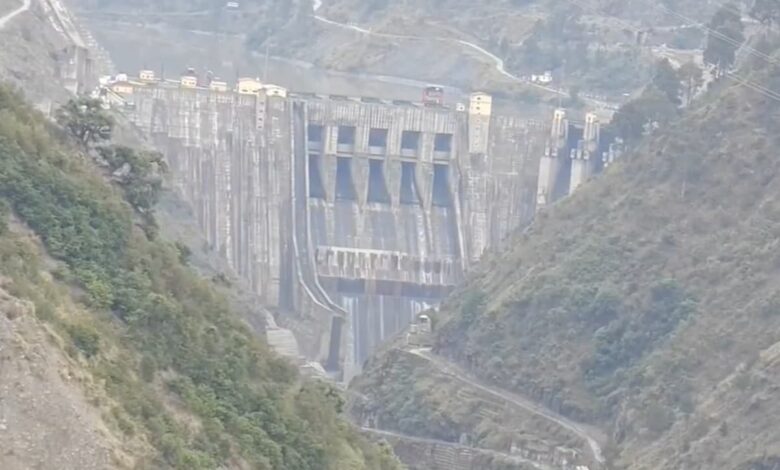India’s Water Warning To Pak As It Blocks Flow Through Jammu Dam On Chenab


Srinagar:
Following its decision to suspend the Indus Water Treaty in retaliation for the Pahalgam terror attack, India briefly stopped water flow through the Baglihar dam on the Chenab river. According to reports, the Centre is planning similar steps on the Kishanganga Dam.
This move is temporary as the Baglihar dam has been built in line with the Indus Waters Treaty and can hold a limited volume of water after which it must release it. But coming amid bilateral tensions in the wake of the terror attack, it is clearly a warning sign for Islamabad.
The Chenab, on which the Baglihar dam is built, is a “western river” and, according to the waters treaty, Pakistan is entitled to its unrestricted use. India can only use the waters of these rivers for agricultural use, hydroelectric power generation, or any other form of non-consumptive use.
The Baglihar project is a run-of-the-river power project in Jammu and Kashmir’s Ramban district. A run-of-the-river project has little or no water storage. The project currently generates 900 MW of hydroelectricity. The project’s first phase was completed in 2008 and the second in 2015. The Kishanganga project, also a run-of-the-river project, is located in Bandipore and has a 330 MW capacity.
Pakistan had objected to both these projects, alleging that the designs and parameters violated the waters treaty. It said that Baglihar dam’s parameters would give India a strategic advantage during conflict.
After several rounds of talks did not yield an agreement on Baglihar, Pakistan flagged its objections to the World Bank, a signatory to the Indus Waters Treaty. A World Bank-appointed expert upheld some of Pakistan’s objections, but rejected its concerns on the dam’s height and gated control of the spillway.
In the Kishanganga project, too, Pakistan raised objections and said India was not permitted to divert waters from one tributary to another. Islamabad went to the World Bank and a Court of Arbitration ruled in New Delhi’s favour.
India’s move to stop water is temporary because the Baglihar dam can only hold water to a certain height. Once that is met, India must release water. The only way to stop water for longer durations is to increase the dam’s height, which would not happen overnight.
Pakistan has earlier warned that any move by India to stop water would be considered an act of war and threatened to suspend all bilateral agreements, including the Simla Agreement that validates the Line of Control.
Ties between the two neighbours have nosedived in the wake of the heinous terror attack in Pahalgam in which 25 tourists and a Kashmiri were killed in cold blood. Prime Minister Narendra Modi has said there is “grief and rage” over the killings from “Kargil to Kanyakumari”. “This attack was not just on innocent tourists; the country’s enemies have shown the audacity to attack India’s soul,” the Prime Minister has said, adding that the terrorists who carried out the attack and those who plotted it would “get a punishment they cannot imagine”.
Investigation into the shocking terror strike has pointed to the involvement of Pakistan, which has earlier backed several acts of terror on Indian soil.


